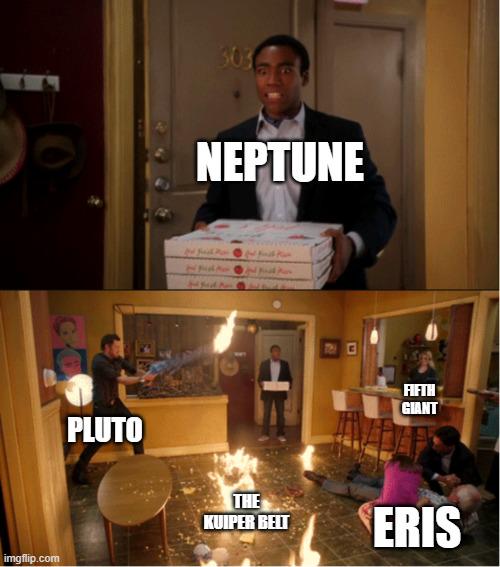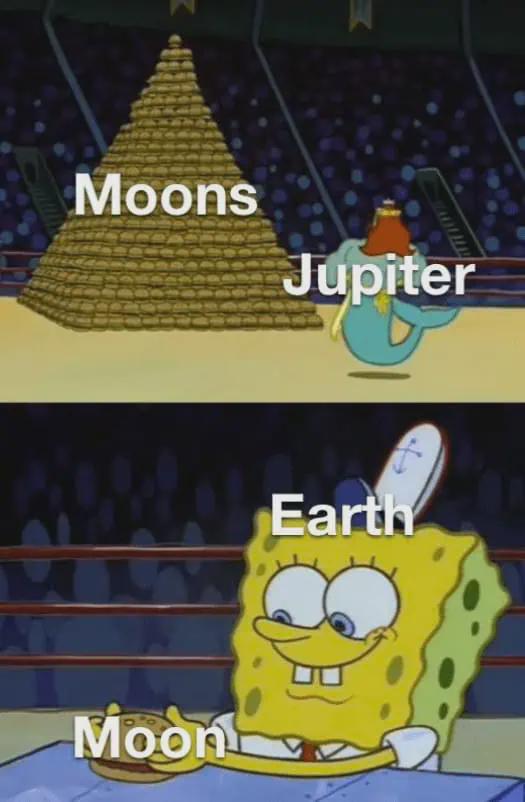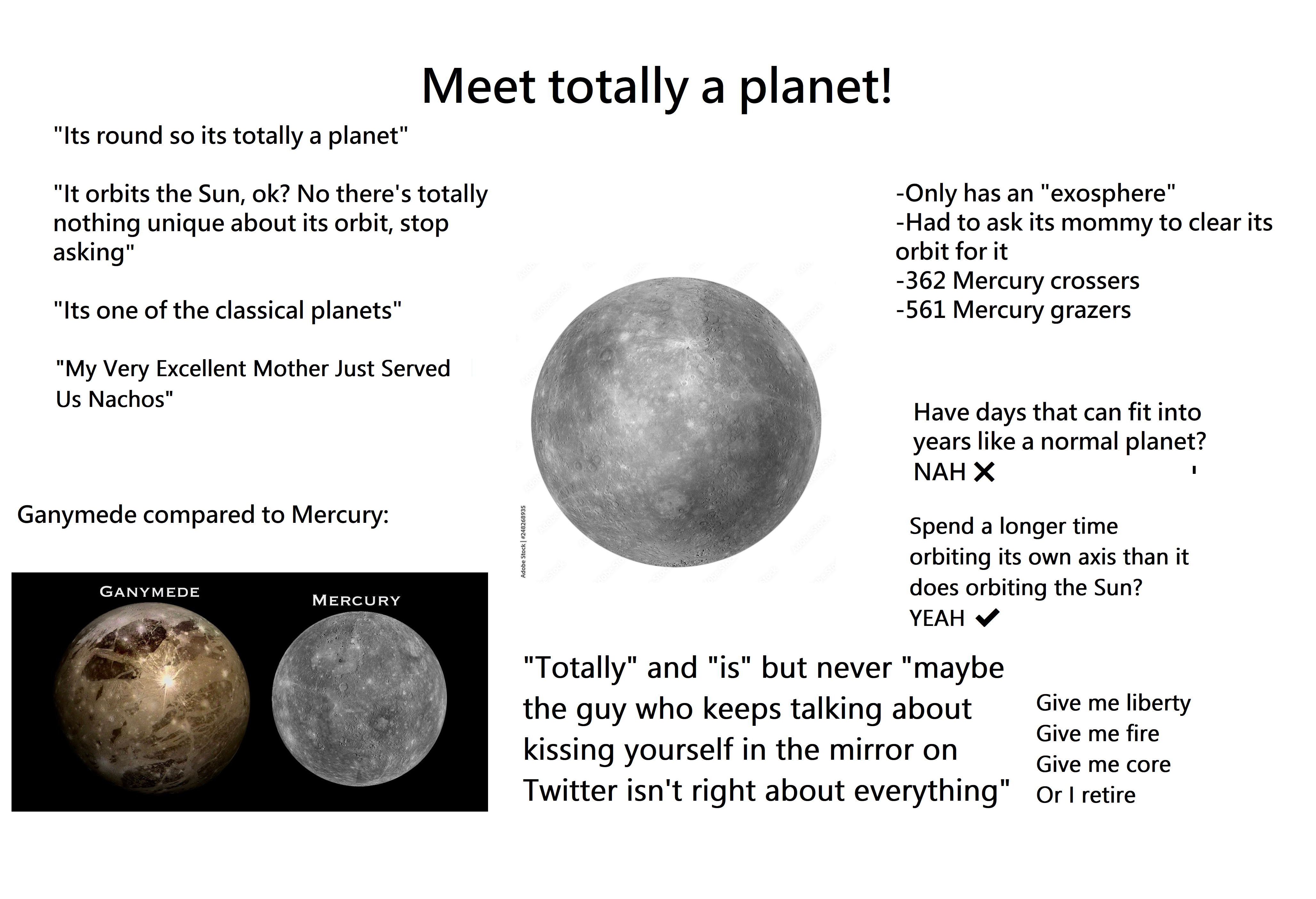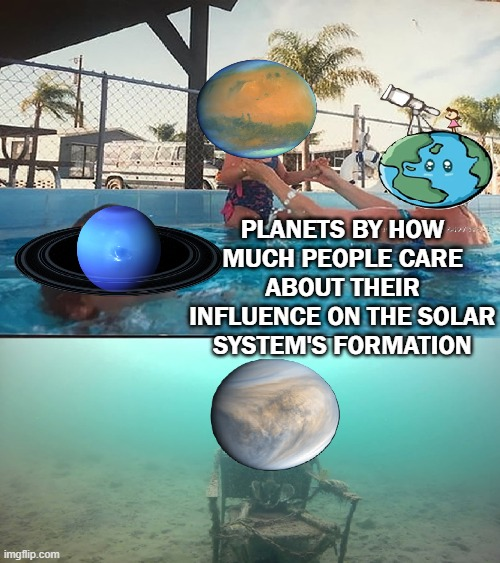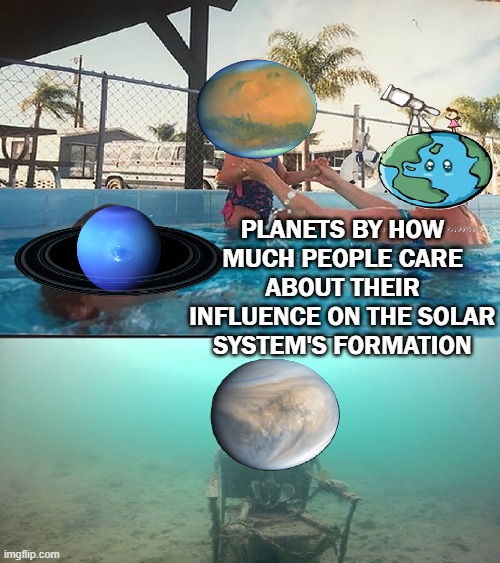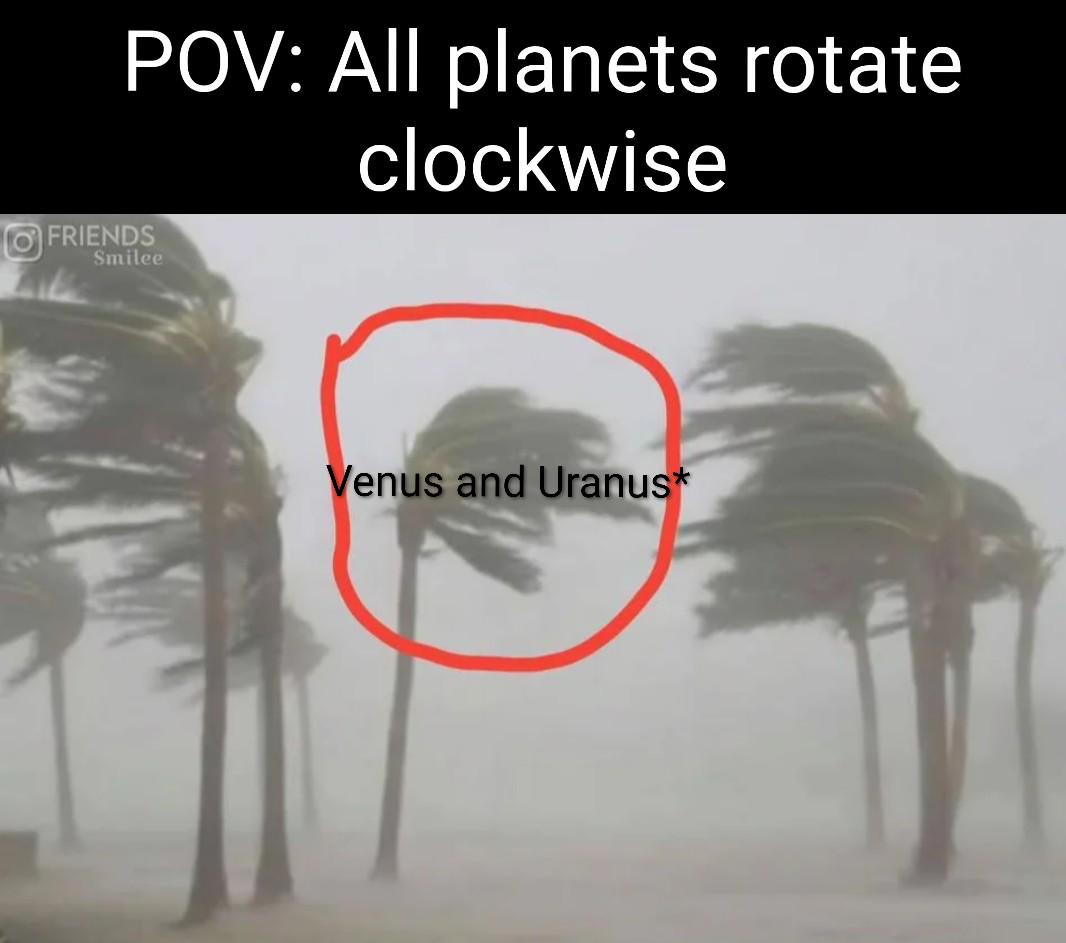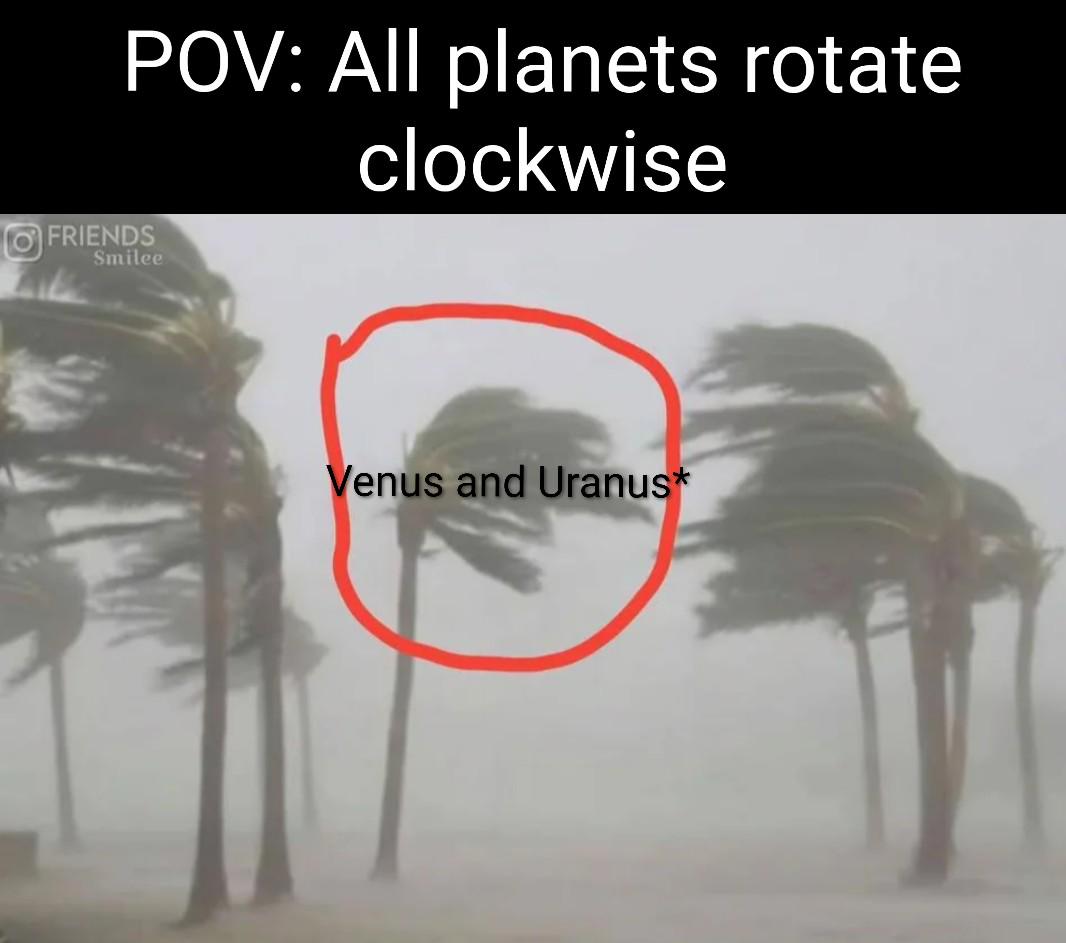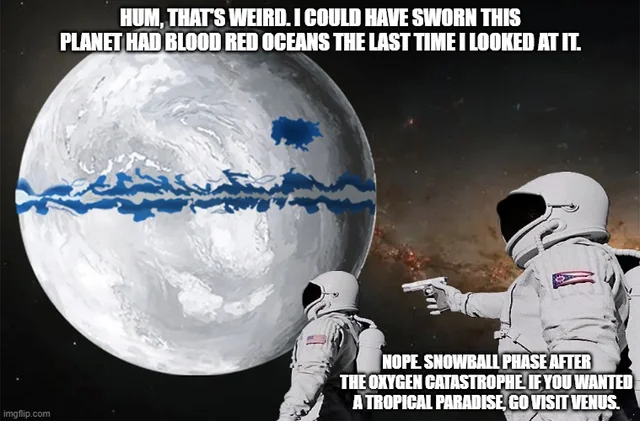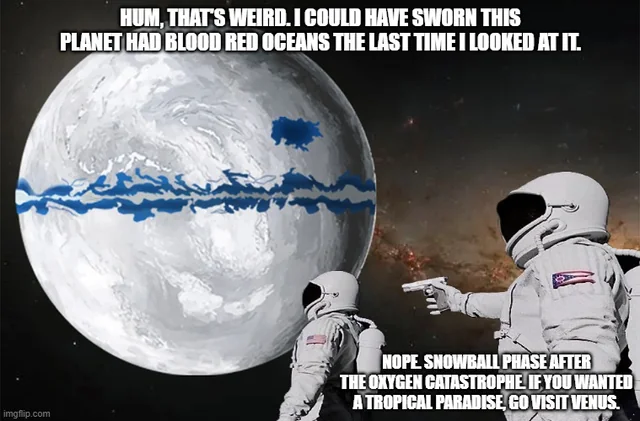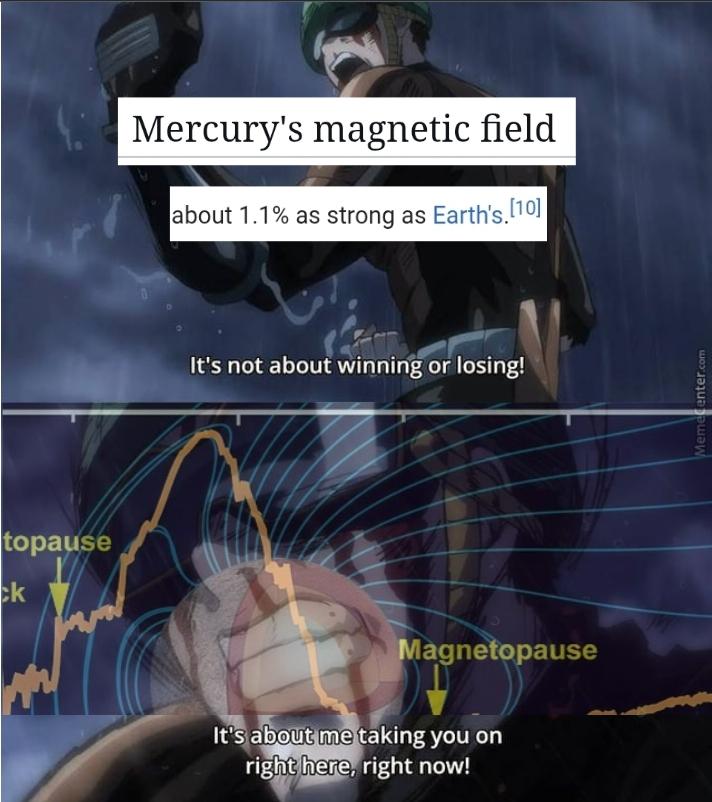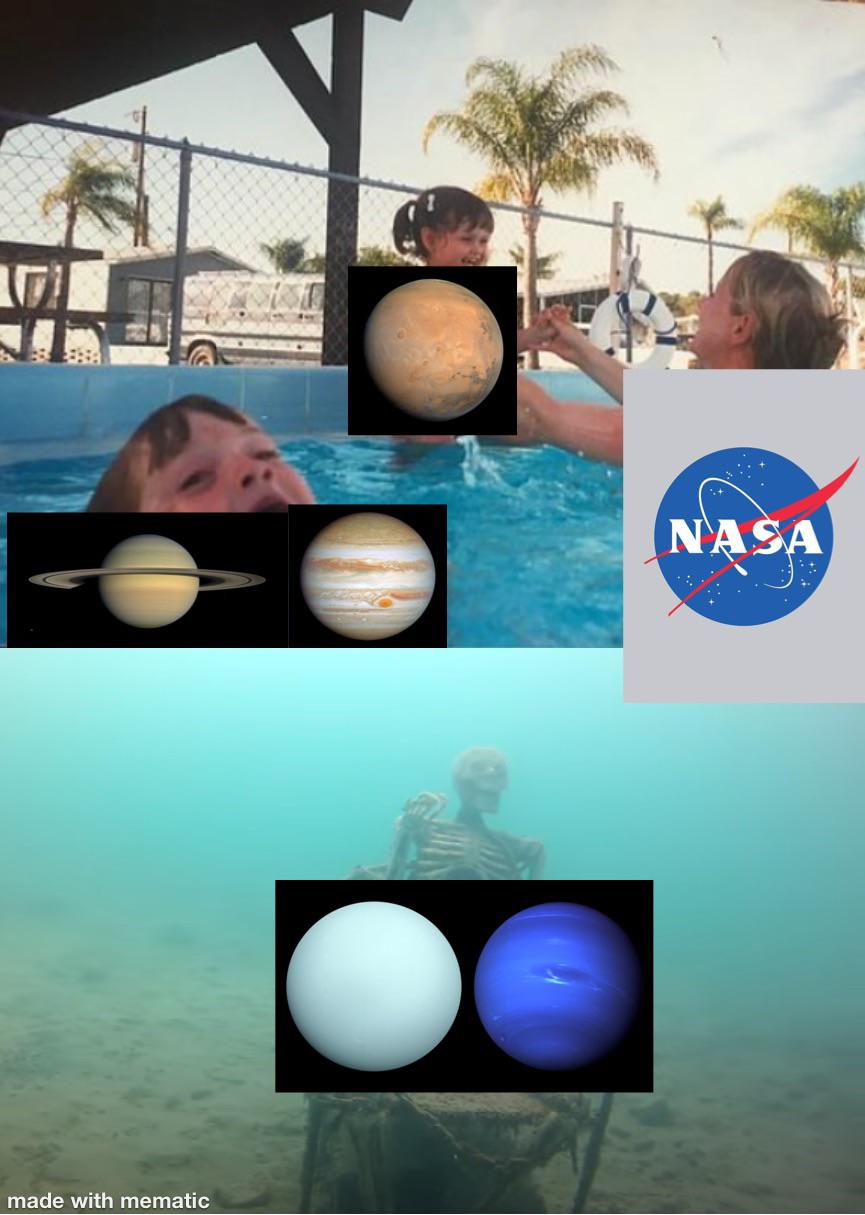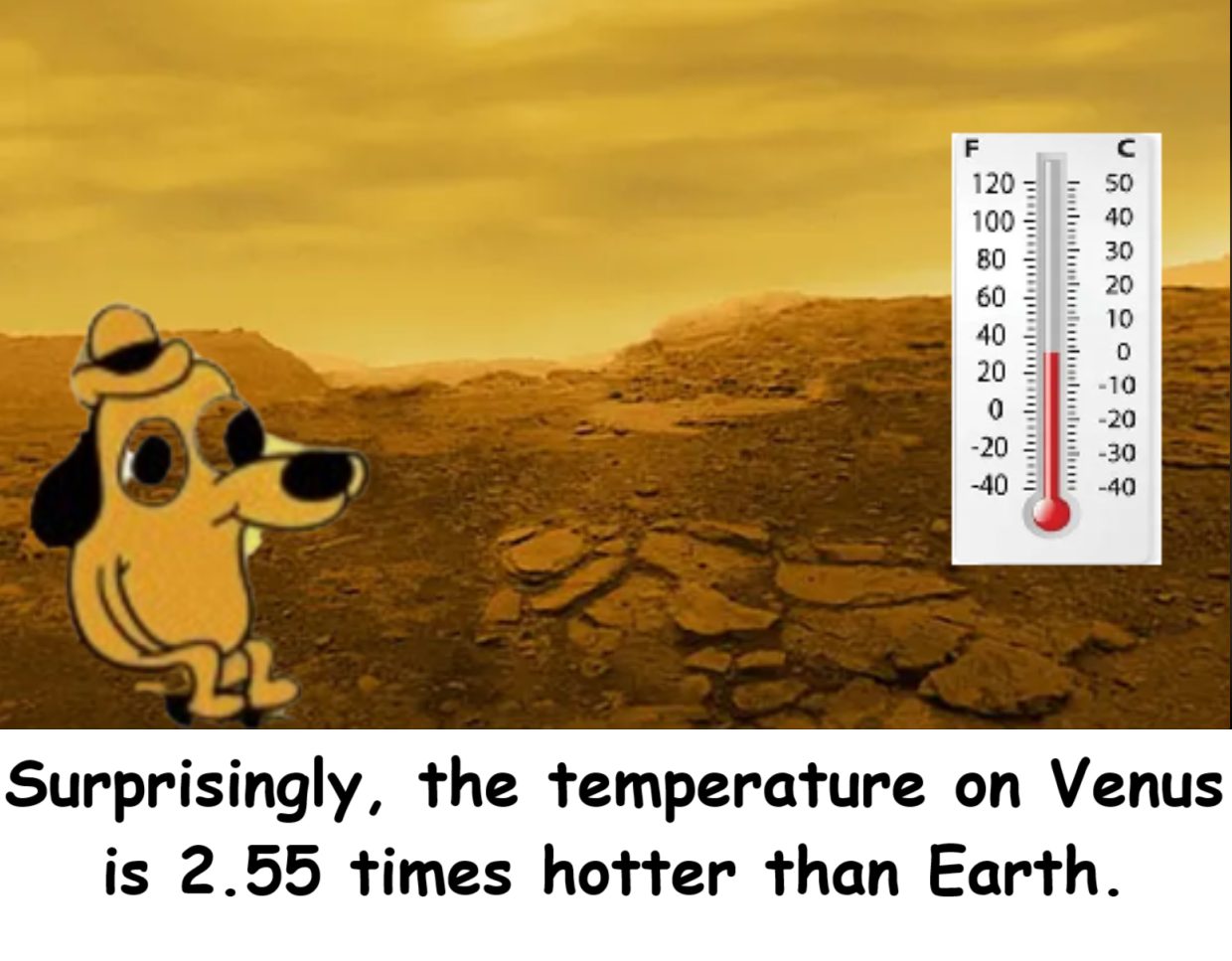Mercury's out here giving motivational speeches with its pathetic 1.1% magnetic field strength compared to Earth. It's like that scrawny kid in gym class who's all heart but no muscle, screaming "I'LL TAKE YOU ON RIGHT HERE, RIGHT NOW!" at the magnetopause. The magnetopause is basically where a planet's magnetic field meets the solar wind and says "YOU SHALL NOT PASS!" Earth does it with confidence. Mercury does it with... well, the astronomical equivalent of small dog energy. Just remember: in the vast cosmic arena, it's not the strength of your magnetic field that matters—it's how you use it. Mercury's trying its best with what it's got, and honestly, that's inspiring.


 Academia
Academia
 Ai
Ai
 Astronomy
Astronomy
 Biology
Biology
 Chemistry
Chemistry
 Climate
Climate
 Conspiracy
Conspiracy
 Earth-science
Earth-science
 Engineering
Engineering
 Evolution
Evolution
 Geology
Geology
